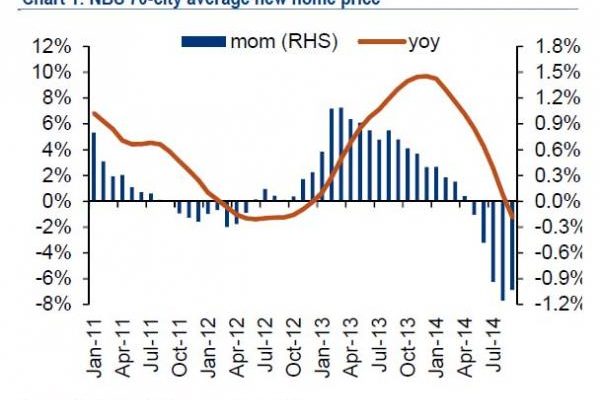A week ago, when showing the following chart of Chinese housing trends…

… we reported that the “when showing “, and warned that it is only a matter of time before both China’s GDP, extensively reliant on housing construction, as well as Chinese bank assets, primarily consisting of housing-related loans and other fixed income exposure, take a major hit.
This happened yesterday, when in an exchange filing China’s Industrial & Commercial Bank of China, the biggest bank in both China and the entire world, reported its biggest jump in bad loans since at least 2006.
Specifically, ICBC’s nonperforming loans rose to 115.5 billion yuan in September from 105.7 billion yuan in June. The increase was the biggest since quarterly data became available. Nonperforming credit accounted for 1.06 percent of total advances.
It wasn’t just ICBC: as the chart from the WSJ below shows, bad debt rose at every single other major bank in China as well:

According to Bloomberg, nonperforming loans rose 9 percent in the third quarter from the previous three months, the Beijing-based bank said in an exchange filing yesterday. This increase surpassed the rise in net income which gained 7.7 percent from a year earlier to 72.4 billion yuan ($11.8 billion).
The problem for China is two-fold. On one hand as Bloomberg observes, “a struggling Chinese economy is weighing on ICBC’s share price and is poised to drag the company to its weakest full-year profit growth since at least 2001 as more borrowers default.”
The second problem is that as ICBC felt first hand (and surely underreported, because this is China after all), the soaring bad debt notionals make it next to impossible for the PBOC to inject even more good debt which would promptly turn into NPLs until it ultimately drowns China leading to the mass defaults which the Politburo has been avoiding for so long.

